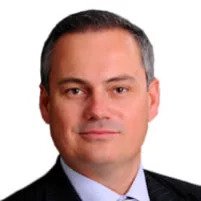Evan Leybourn, Robin Mack
September 25, 2018
Evan Leybourn, Robin Mack
September 25, 2018
 Restructuring an organisation is complex and time consuming. Decision makers at the executive, board and even shareholder level don’t always agree, making it difficult to succeed in a shared outcome. When property valuation firm, Herron Todd White, undertook a merger, it faced a huge challenge to get stakeholders aligned and able to make key decisions to move the organisation forward.
Restructuring an organisation is complex and time consuming. Decision makers at the executive, board and even shareholder level don’t always agree, making it difficult to succeed in a shared outcome. When property valuation firm, Herron Todd White, undertook a merger, it faced a huge challenge to get stakeholders aligned and able to make key decisions to move the organisation forward.
Come and hear how this organisation applied agility principles to the merger/restructure process to help engage stakeholders and get to a successful outcome sooner. Beware, this story has a surprising ending.
It would not an uncontroversial to say that mergers are one of the most complex, disruptive and unpredictable activities that a company can ever go through. Yet, most organisations will go through the process at least once. It is in these situations that the benefit of business agility is clearly evident.
I got a chance to speak up with Robin Mack, CEO at Innovation Transformation, to get his thoughts on the importance of culture during a complex merger. He shares his insights on learning quickly, failing fast and focusing on the now.
Evan Leybourn: M&A's are difficult at the best of times. Your talk at the Business Agility Conference is looking at the culture and the importance of culture. How do you build a strong culture during a merger?
Robin Mack: The most important thing is to talk about it. In the case with Herron Todd White, we frequently asked 'how is this going to affect our culture?' In a merger process, most of the time is spent in planning, setting things up, and looking ahead to what it would be like. So, if you don't make culture part of your decision-making by questioning 'is this the right thing to do?' you might end up with a great deal, but not a viable business outcome in the long-term.
EL: So, what does Business Agility during an M&A look like?
RM: *laughs* That a good question
EL: Can you even have it?
RM: It actually looks pretty messy because we're constantly learning as we go. And, as we learnt something new, we adapted and started to apply those changes to the next piece of the merger. In our case, we spent quite a bit of time looking at the bigger picture and forcing ourselves to come back to 'what's the short-term look like?'. We didn't want to dwell on the overall design too much as it was constantly changing. We got glimpses of it, but always came back and looked at what we're doing right now. So, as were delivering each piece, we were always changing, adapting and (sometimes) failing.
EL: What did you learn from those failures?
RM: A lot of our learning during the merger was around engagement and the softer side of things. After all, a deal is a deal and a number is a number, but there's always emotion involved. In this case, the owners were part of the organisations and had worked there throughout their whole lives. And so, we were learning more about the emotional side of the merger and the effect it was having on the decision making for the business owners, the board, and for the leadership team that was trying to put this together.
EL: Mergers and acquisitions are hard at the best of times and taking a more human approach is great. Was the outcome positive? Did the people who went through this, compared to other M&As, get a better outcome?
RM: I will say that we got to the right outcome fast. You'll need to listen to my presentation at the Business Agility Conference to find out how. I don’t want to give away the surprise at the end.
EL: Fair enough. Knowing what you know now, what would you do differently?
RM: I would have engaged much earlier. Getting trust takes a lot of time. Especially when you're dealing with multiple owners, many of whom have never heard of agile, and you've got to take them on a journey. I stepped in after the merger was struggling and not delivering. If we could have started from the beginning with this kind of approach, we may have gotten to an answer sooner.
EL: When someone listens to your talk, ‘Agility in a complex corporate structure, a M&A Story’, at the Business Agility Conference, what new ideas will they walk away with?
RM: They will walk away with practical ideas on how they can apply some of the agile principles to complex situations and where they can get benefit from the thinking behind it. At some point, everybody goes through a reorganisation, a cultural change, a merger, or an acquisition that changes the organisation. The things that we applied here can be applied to any of those situations.
 Head of Pacific Valuation & Advisory Services @ CBRE
Head of Pacific Valuation & Advisory Services @ CBRE
A proven senior executive / CEO, I am an experienced professional used to leading large teams to deliver on the vision and value to the customer. I have exceptional experience driving negotiations with various stakeholders, building capability for forward thinking and a unique ability to communicate at all levels to create a high level of motivation and stamina, and a strong entrepreneurial mindset within the organisations I lead.
With over 13 years of experience working within C-suite level positions within professional services, I also possess a strong background in government, NGOs and management roles within the arts, having sat on and currently holding seats on boards in both for profit and non-profit organisations. Possessing a strong background in governance and leading complex and challenging commercial initiatives, I am a strategic leader with the ability to achieve key deliverables through challenging the status quo and applying commercial acumen and analysis to ensure the best commercial and strategic decisions are made to achieve desired outcomes. A visionary and strategic leader, I am able to inspire performance and lead with courage to drive critical change and drive exceptional results through people and policy in every role I undertake.
 Founder/CEO @ Innovation Transformation
Founder/CEO @ Innovation Transformation
Robin Mack is the Founder & CEO of Innovation Transformation where they help enterprise organisations think and act more like start-ups. Robin’s background and practical experience with implementing agile, lean and design thinking principles has supported transformation at several of the Australia’s largest financial, retail, media and telco companies over the last decade.
Prior to the current role, Robin held senior IT roles at Tatts Group, Wotif and over five years with ThoughtWorks Australia as a principal consultant. Originally from the United States, Robin has also started businesses around the world as well as managed programs for global companies including American Express, GE Capital IT Solutions, and Pearson Publishing.
In 2000, Robin co-founded Eddie’s Learning World, India and later founded Learning World International, USA in 2001. Here Robin served as President for 4 years establishing the company and products that leveraged the use of newly expanding Internet technologies and the use of data in primary education across North America and Asia. Robin continues his personal passion for education by serving on the Board of Directors for John Paul College.
Robin holds a MBA from Queensland University of Technology in entrepreneurship and international business and a BS from Grand Canyon University in Business / Finance. Robin also holds a Project Management Professional (PMP) certifications from the Project Management Institute and a Graduate certificate from the Australian Institute of Company Directors (GAICD). Robin speaks at both national and international conferences on agile, innovation and modern management approaches.
Please subscribe and become a member to access the entire Business Agility Library without restriction.